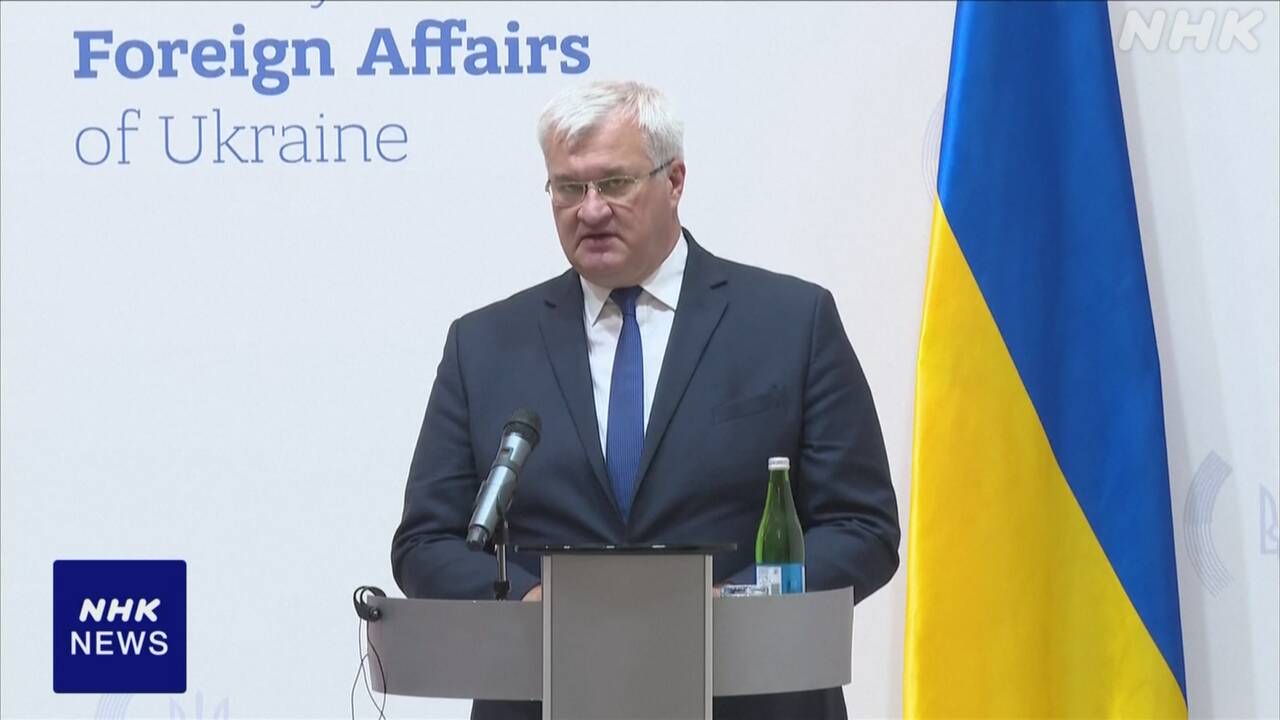Published: 2025-09-13 18:07
ウクライナ外相 ロシアの無人機対策でポーランドと協力へ

ウクライナのシビハ外相は、ロシアの無人機に領空を侵犯されたとするポーランドから代表団を受け入れ、3年半余りにわたるロシアとの戦闘の経験をもとに無人機への対策で協力していく考えを示しました。
ロイター通信によりますと、ウクライナのシビハ外相は12日、ポーランド軍の代表団が9月18日にウクライナを訪問する予定だと明らかにしました。
ポーランドは、ウクライナへの侵攻を続けるロシア軍の無人機が今月9日から10日にかけて自国の領空を侵犯したと非難していて、シビハ外相は「こうした課題への対処に必要な経験があるのはウクライナだけだ」と述べ、ロシアの無人機への対策でポーランドと協力していく考えを示しました。
一方、アメリカのシンクタンク、戦争研究所は無人機の残骸が見つかったとされる場所を地図にまとめ、ホームページ上に公開しました。
この地図では、ポーランド東部の国境付近のほか、中部や北部、それに、首都ワルシャワに比較的近い地域など広い範囲で残骸が見つかったとされていて、ポーランド政府が警戒を強めています。
| # | 言葉 | 意味 |
|---|---|---|
| 5 | 無人機 | むじんき (無人機) : drone; unmanned aircraft |
| 3 | 外相 | がいしょう (外相) : Foreign Minister |
| 2 | 領空 | りょうくう (領空) : territorial airspace |
| 2 | 侵犯 | しんぱん (侵犯) : violation (of foreign territory, rights, etc.); invasion; infringement |
| 2 | 代表 | だいひょう (代表) : 1. representative; representation; delegation; type; example; model 2. switchboard number; main number |
| 2 | 団 | だん (団) : body; group; party; company; troupe |
| 2 | 対策 | たいさく (対策) : measure; step; countermeasure; counterplan; countermove; strategy; preparation (e.g. for a test) |
| 2 | 協力 | きょうりょく (協力) : cooperation; collaboration |
| 2 | 考え | かんがえ (考え) : 1. thinking; thought; view; opinion; concept 2. idea; notion; imagination |
| 2 | 示す | しめす (示す) : 1. to (take out and) show; to demonstrate; to tell; to exemplify; to make apparent 2. to point out (finger, clock hand, needle, etc.) |
| 2 | 残骸 | ざんがい (残骸) : ruins; wreckage; wreck; broken remains; debris |
| 2 | 見つかる | みつかる (見つかる) : to be found; to be discovered |
| 1 | 受け入れる | うけいれる (受け入れる) : to accept; to receive; to agree |
| 1 | 余り | あまり (余り) : 1. remainder; remnant; rest; balance; surplus; remains (of a meal); leftovers 2. (not) very; (not) much |
| 1 | 戦闘 | せんとう (戦闘) : battle; fight; combat |
| 1 | もと | もと (元) : 1. origin; source 2. base; basis; foundation; root |
| 1 | 通信 | つうしん (通信) : correspondence; communication; transmission; news; signal; telecommunications |
| 1 | 訪問 | ほうもん (訪問) : call; visit |
| 1 | 明らか | あきらか (明らか) : 1. clear; obvious; evident; plain; definite 2. bright; light |
| 1 | 侵攻 | しんこう (侵攻) : invasion |
| 1 | 自国 | じこく (自国) : one's own country |
| 1 | 非難 | ひなん (非難) : criticism; blame; censure; attack; reproach |
| 1 | 課題 | かだい (課題) : 1. subject; theme; issue; matter 2. homework; assignment |
| 1 | 対処 | たいしょ (対処) : dealing with; coping with |
| 1 | 述べる | のべる (述べる) : to state; to express; to mention |
| 1 | 一方 | いっぽう (一方) : 1. one (esp. of two); the other; one way; the other way; one direction; the other direction; one side; the other side; one party; the other party 2. on the one hand; on the other hand |
| 1 | 研究所 | けんきゅうしょ (研究所) : research establishment; research institute; laboratory |
| 1 | まとめる | まとめる (纏める) : 1. to collect; to put (it all) together; to integrate; to consolidate; to unify 2. to summarize; to aggregate |
| 1 | 公開 | こうかい (公開) : opening to the public; making available to the public; putting on display; exhibiting; showing (play, movie, etc.); holding (interview, etc.); open; public |
| 1 | 東部 | とうぶ (東部) : eastern part; the east (of a region) |
| 1 | 中部 | ちゅうぶ (中部) : 1. center; centre; middle; heart 2. Chūbu region (incl. Aichi, Nagano, Shizuoka, Niigata, Toyama, Ishikawa, Fukui, Yamanashi and Gifu prefectures) |
| 1 | 北部 | ほくぶ (北部) : northern part; the north (of a region) |
| 1 | 首都 | しゅと (首都) : capital city; metropolis |
| 1 | 比較的 | ひかくてき (比較的) : comparatively; relatively |
| 1 | 地域 | ちいき (地域) : area; region |
| 1 | 範囲 | はんい (範囲) : extent; scope; sphere; range; span |
| 1 | 警戒 | けいかい (警戒) : vigilance; caution; alertness; precaution; being on guard |
| 1 | 強める | つよめる (強める) : to strengthen; to emphasize; to emphasise |